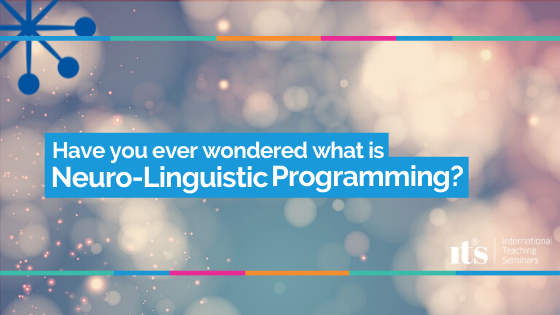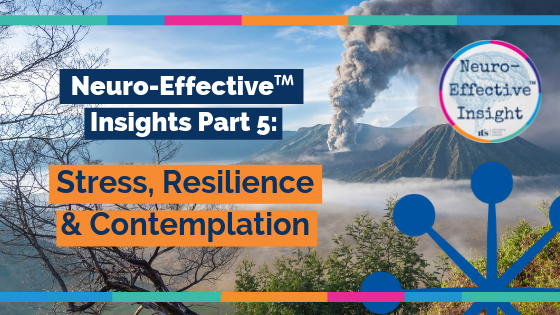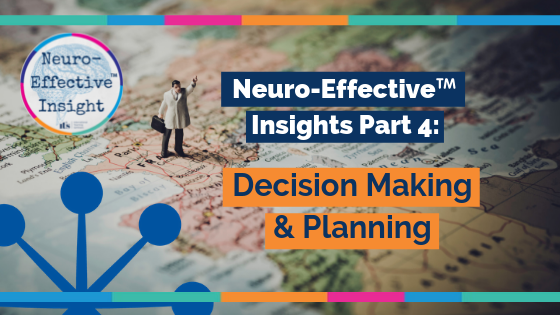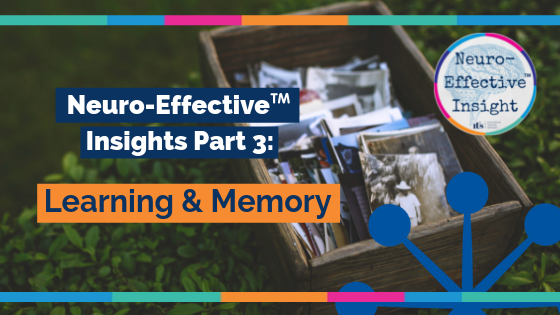Have you ever wondered what Neuro-Linguistic Programming is? This comprehensive guide will give you a basic understanding of NLP and how it works.
Neuro-Linguistic Programming – or NLP as it’s commonly known – is fundamentally the study of human excellence.
Or, for a definition that takes a little more thinking about; it is the study of the structure of subjective behaviour.
NLP is a popular discipline that has been used for many years to help people achieve their goals. It is about marrying a mindset with practical techniques. It can benefit you in many ways and is a powerful tool for transformation, including improving your communication skills, increasing your self-confidence, and helping you achieve your desired outcomes.
“Understand how human beings work, not by trying to fix what doesn’t work, but by beginning to look at what we know to be how people function when they function at their best.“ – Ian Mcdermott, ITS Founder
Where did Neuro-Linguistic Programming originate?
NLP was developed in the 1970s by Richard Bandler and John Grinder whilst at The University of California, Santa Cruz. Grinder was studying Linguistics and Bandler was an information scientist and mathematician that was studying Philosophy and Psychology at the time.
Their interest was on high performing individuals and set upon studying the behaviour and mindset that lead this group of people to achieve great things.
They then took what they observed about these individuals to created various exercises and techniques that could be modelled and replicated by others.
Counselling, health, law, coaching, business, the performing arts, sports, the military, and education are just a few of the disciplines where NLP is applied today.
How does Neuro-Linguistic Programming work?
Think about the way you talk to yourself. As humans, we often fall into self-defeating patterns of thinking either consciously and/or subconsciously.
NLP is about raising our awareness of this inner dialogue and any limiting beliefs we may have picked up and offers a tool box of practical how-to’s to help you choose a more resourceful mindset or behaviour.
In other words, though models of excellence NLP can help give you more choice about how you respond to situations instead of defaulting to learnt behaviour and patterns of thinking that has kept you feeling suck.
Here’s a common example, let’s say you want to quit smoking.
NLP can help you identify the ‘positive by-product’ of your smoking habit [or inserted any unwanted behaviour here].
This is because ‘human behaviour’ is purposeful, even though at times what you are doing may seem to be unwanted, negative or self-destructive. It works on the principle that your unwanted behaviour has a greater function. that there must be some payoff or that it worked for you in the past, otherwise you wouldn’t keep doing it.
Once you have identified the positive by-product of your unwanted behaviour, get clear about how you can incorporate them into the proposed change.
Here are some other core NLP techniques:
Reframing
Our frame of reality is constructed by the influences we pay attention and attach meaning to. In other words our brain creates our view of the world based on the things that seem important to us.
Each person’s reality or experience of the world is different and often this is where our pasts are running our experience of the present and in turn forge our futures.
The perspective that is taken on an event can change the meaning – and this is exactly what happens when you adopt any of the NLP reframing techniques.
Anchoring
This is a technique that helps you to associate a positive feeling with a situation or object.
Anchors will change your state (the way we are organised physiologically at any moment and can occur naturally or they can be set up intentionally.
For example, is there a particular smell or song that reminds you of an experience or feeling? Where you hear that particular song or smell that familiar scent and you are instantly transported to that memory or feeling. This is anchoring.
As research from neuroscience is developing we can see how the science supports this NLP technique in this article ‘Music, memory and emotion are interwoven. Here’s why a song can spark a vivid recollection’.
Modelling:
Modelling is at the root of NLP, as a principle and as a technique.
It works on the basis that if one person can do something, it is possible to model it and teach it to others – if you break it down into small enough chunks.
Modelling is something you are already an expert in. You just may not know that you are, and you may have no understanding of your expertise.
Your models can be either real or fictional, alive or dead, known to you or not. It doesn’t matter. What is important is that you have an idea of what it is you would rather have or be.
How can Neuro-Linguistic Programming benefit you?
On a personal level, NLP has a great many benefits, such as:
- Improving your communication skills
- Increasing your self-confidence
- Helping you achieve your desired outcomes
- Becoming aware of unhelpful subconscious patterns
- Breaking bad habits and behaviours
- Overcoming any limiting beliefs and blockers
- Dealing with people you may find difficult
- Creating more freedom to choose what matters to you
- Managing unexpected life events and challenges
It’s also a highly-effective tool to utilise in business.
Benefits of NLP in Business
In leadership and management teams, we are taught that micromanaging isn’t necessarily the best way to do things. Instead, coaching and mentoring are more successful in bringing out the best in the people around us.
Many people begin learning about NLP for business benefits. Being able to help your employees and co-workers learn how to hone in on more successful habits will mean that the landscape of your business changes.
However, when you undertake such learning, you can’t help but learn more about yourself and in turn you begin to apply the same structures to your life seeking the same results.
NLP takes into account the beliefs and values of a person, their needs and desires, which differ from person to person.
Leveraging NLP techniques can help to build rapport and connection with your peers, plus it makes communication far better.
As a leader, staying calm and collected in challenging situations, being able to keep moving forward and support others at the same time, is often required.
Practising NLP will help you to manage your thoughts, and therefore emotions that get stirred up. Having the ability to conduct yourself professionally and lead your team with assurance.
Does Neuro-Linguistic Programming ever fail?
Like with learning any new skill, the more you put in, the more you get out of it. Some NLP techniques may resonate with you, some you may feel less impactful. When this happens we sometimes find that what might not land for you now, may later have a greater significance when the time is right.
Some common ways that people use Neuro-Linguistic Programming incorrectly include:
If you think you know it all already: Come with a beginner’s mind, be open and curious assuming a growth mindset.
Believe that change is not possible: This is a fixed mindset approach. You will often prove yourself right if you are not willing to consider new possibilities, since we create our own reality through the filters in which we operate from.
Not getting help from a certified practitioner: It is best to get help from a certified practitioner since Neuro-Linguistic Programming is a complex subject, and it can be difficult to learn on your own.
.
How to get started with Neuro-Linguistic Programming?
If you’re interested in Neuro-Linguistic Programming, there are a few ways to get started:
- Read books or articles about NLP. A good online source is the ANLP, they are the Association for Neuro-Linguistic Programming in the UK.
- Take an online course about NLP.
- Find a certified NLP Practitioner Programme.
- Attend a one-day workshop or webinar to get a first-hand experience of NLP.
Check out what ITS has to offer in our ‘NLP Practitioner Programme with Neuroscience’.
Few of us are 100% satisfied with how we think, behave and feel. NLP provides simple yet profound techniques to help us bring about positive and lasting change in ourselves and others.
Our founder, Ian Mcdermott, has a brilliant way to think about NLP that rounds it all up perfectly.
“The real payoff of NLP is that you get to learn how-to’s that have already been demonstrated as effective by models of excellence, that have been broken down into steps that are teachable, for you to learn how to do something.“
If you would like to hear more from Ian and to get small taste of what it’s like to learn with him, then download a free chapter from his book ‘Manage Yourself, Manage Your life’ to help you get clearer about ‘What you want’.
Or If you have any questions about our programmes or about NLP then please feel free to leave a comment below, or get in touch.





NLP Program can help you learn about the language that develops you.
Your blog provides a balanced, beginner-friendly introduction to NLP, explaining key concepts and techniques without overstating benefits or effectiveness. It encourages learning from certified practitioners.